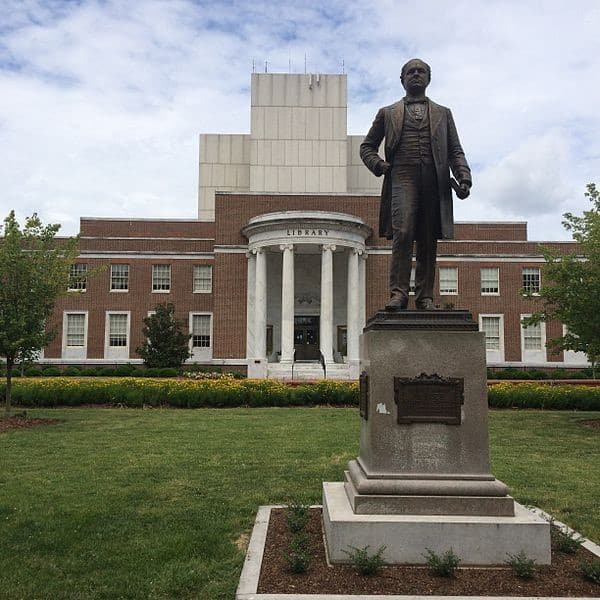31 Jan2020
By Jane E. West

This blog post is written by AACTE consultant Jane West and is intended to provide updated information. The views expressed in this post do not necessarily reflect the views of AACTE.
Federal Budget: The Deficit Explodes; Do Earmarks Return?
The federal government’s budget deficit is projected to reach $1.02 trillion in 2020—the first time since 2012 that the deficit breached the $1 trillion threshold—according to the Congressional Budget Office (CBO). The combination of 2017 tax cuts and new spending have been the biggest contributors to the increased deficit. FY 2020 is likely to see spending in the $4.6 trillion range while the government brings in only $3.6 trillion in tax revenue. CBO Director Phillip Swagel said, “Changes in fiscal policy must be made to address the budget situation, because our debt is growing on an unsustainable path.”
House Appropriations Chair, Rep. Nina Lowey (D-NY) is talking with Democratic colleagues to gauge their interest and seek input. The plan under deliberation would be a revised version of past earmarking with rules in place to keep the system in check. One aide to a freshman Democrat who flipped a GOP-held seat in 2018 noted, “This is not what we came to Congress to do. Voters made it clear years ago that they were tired of pork and special interest spending in Washington and sweetheart deals.” However, Majority Leader Steny Hoyer backs the revival of an earmark-type system. However, the Senate does not seem receptive to the idea. “The Republican Caucus is on the record against that, so that’s not going to go anywhere,” said Senate Appropriations Chair Richard Shelby (R-AL).
23 Jan2020
By Kim Chaudoin

This article originally appeared on the Lipscomb University website and is reprinted with permission.
More than 10,000 books are being distributed to children in high priority schools in Metro Nashville Public Schools and Murfreesboro City Schools through a partnership between Lipscomb University’s College of Education and Middle Tennessee State University as the result of a $50,000 grant from First Book.
Suze Gilbert, lead faculty for reading speciality in Lipscomb’s College of Education, and Katie Schrodt, assistant professor in MTSU’s Department of Elementary and Special Education, collaborated with nonprofits Read TO Succeed and Book’Em on this initiative. The grant provides 10,000 books to children and teachers in high priority schools in MNPS and Murfreesboro. In addition to the books, the grant also provides funding for professional development for teachers in those schools. Gilbert and Schrodt are hosting teachers from MNPS and Murfreesboro City schools on both the Lipscomb University and MTSU campuses throughout the winter months to engage in professional learning on Family Literacy Nights and Disciplinary Literacy. Each participating school will receive books to give to children during a Family Literacy Night to be held at each school and books to build classroom libraries.
23 Jan2020
By Aaron Mudd
This article originally appeared in Bowling Green Daily News and is reprinted with permission.
A federal grant award topping $1 million to Western Kentucky University will help address a shortage of special education professionals seen regionally and across Kentucky.
“The shortages are felt nationally, but definitely in an acute manner in our rural communities,” said WKU College of Education and Behavioral Sciences Dean Corinne Murphy, whose college is heading up the effort called Project PREP, or Preparing Rural Educators and Professionals for Students with High-Intensity Needs.
The American Association of Colleges for Teacher Education said there’s a shortage and a lack of diversity of fully prepared and credentialed special education teachers in public schools across the country.
10 Jan2020
By Jane E. West

This blog post is written by AACTE consultant Jane West and is intended to provide updated information. The views expressed in this post do not necessarily reflect the views of AACTE.
Happy New Year! Welcome to the new decade and the second session of the 116th Congress. Can we even imagine what it holds for us? One thing we do know – our advocacy on behalf of equity and education will only amplify!
Funding Cycle for 2021: On Schedule?
With the ink barely dry on the FY 2020 funding packages, the budget cycle for FY 2021 is already on the horizon. The Trump Administration announced this week that it intends to release its Budget Proposal for FY 2021 on February 10, thus getting the cycle moving on time. The release of the proposal will be followed by hearings in House and Senate Appropriations committees and months of deliberation.
03 Jan2020
By Deborah Koolbeck
 In a Dear Colleague Letter, Karen Marrongelle of the National Science Foundation (NSF) invites proposals to the Improving Undergraduate STEM Education: Education and Human Resources Program from institutions of higher education that are new to the program. The letter specifically includes the opportunity in the Engaged Student Learning track of “… improving K-12 STEM education through undergraduate preservice STEM teacher preparation …”
In a Dear Colleague Letter, Karen Marrongelle of the National Science Foundation (NSF) invites proposals to the Improving Undergraduate STEM Education: Education and Human Resources Program from institutions of higher education that are new to the program. The letter specifically includes the opportunity in the Engaged Student Learning track of “… improving K-12 STEM education through undergraduate preservice STEM teacher preparation …”
Marrongelle heads the NSF Directorate for Education and Human Resources , which supports “the development of a diverse and well-prepared workforce of scientists, technicians, engineers, mathematicians, and educators and a well-informed citizenry that have access to the ideas and tools of science and engineering.”
20 Dec2019
By Jane E. West

This blog post is written by AACTE consultant Jane West and is intended to provide updated information. The views expressed in this post do not necessarily reflect the views of AACTE
Congress Delivers a Big Christmas Present – and On Time!
Republicans and Democrats in the House and the Senate came together to have bipartisan votes in both bodies to pass two packages of funding bills, which will keep all of the federal government running. President Trump has indicated that he will sign the bills today, thus preventing another government shutdown.
Some key points about the education portion of the bill:
- It adds $1.3 billion in spending for education over FY 2019.
- The Department of Education’s budget now totals $72.8 Billion.
- Virtually no program received a cut in funding and many received substantial increases.
- The largest increases went to Title I ($450 million) and IDEA Part B ($400 million).
- Related programs in HHS received large increases as well, for example Head Start has a $500 million increase.
- A new Social Emotional Learning initiative received $123 million.
- Many minority serving institutions in higher education received considerable increases including an $11 million increase for HBCU graduate institutions.
- For the first time in years funding for research on gun violence prevention is provided at $25 million (for CDC and NIH).
18 Dec2019
By Deborah Koolbeck
 As the Congress rapidly approaches the December 20 deadline for the Continuing Resolution (maintaining federal spending at the Fiscal Year 2019 (FY19) levels while the next year’s levels are negotiated), agreement was reached, and the two bills were released on December 16, 2019.
As the Congress rapidly approaches the December 20 deadline for the Continuing Resolution (maintaining federal spending at the Fiscal Year 2019 (FY19) levels while the next year’s levels are negotiated), agreement was reached, and the two bills were released on December 16, 2019.
The Bipartisan Budget Agreement of 2019 raised the non-defense and defense discretionary caps for FY20 and FY21, and was signed in early August as recess began. Given that the U.S. Senate had taken a stance not to move any bills without the aforementioned agreement in place, their work began in earnest in September. However, the bills were not completed by the end of the fiscal year (September 30), so Congress passed a Continuing Resolution (CR) through November 21, 2019. With consternation around key issues, including funding for the border wall, another CR was put in place through December 20, 2019. It was unclear if the divisions between both parties and both bodies could be resolved by the new cutoff date, but it appears that the Congress is on target to meet its deadline.
16 Dec2019
By Jane E. West

This blog post is written by AACTE consultant Jane West and is intended to provide updated information. The views expressed in this post do not necessarily reflect the views of AACTE.
Funding Agreement on the Horizon! No Shutdown Anticipated
December 20, a week from today, is the deadline for Congress to pass funding bills to keep the government in business and avoid a government shutdown. After weeks of handwringing, a bipartisan $1.3 trillion deal seems to have been brokered whereby all appropriations bills will be passed in the House and the Senate next week. While no details of the bills are yet available, it appears that one of the breakthroughs was an agreement to keep the amount of funding for the border wall (President Trump’s priority) at the current level of $1.375 billion.
Education advocates are eager to see if any of the significant increases in the House bill will be retained in the final package. All fingers are crossed in anticipation of next week. Learn more.
13 Dec2019
By Laura Saylor
 Two professors of education at Mount St. Joseph University, in partnership with the Ohio Department of Education and University of Cincinnati School Psychology program, have been awarded a $1.2 million federal grant to work with three local school districts on improving the literacy of students with or at risk for dyslexia.
Two professors of education at Mount St. Joseph University, in partnership with the Ohio Department of Education and University of Cincinnati School Psychology program, have been awarded a $1.2 million federal grant to work with three local school districts on improving the literacy of students with or at risk for dyslexia.
The U.S. Department of Education Model Demonstration Projects for Early Identification of Students with Dyslexia Grant was awarded to a team led by the Ohio Department of Education’s Office of Approaches to Teaching and Professional Learning in collaboration with Amy Murdoch and Wendy Strickler, professors of reading science at the Mount.
27 Nov2019
By Noah DeMichele

This article originally appeared in the Bottom Line and is reprinted with permission.
Frostburg State University was recently awarded a $4 million grant through the Maryland Accelerates Teacher Education Program. The grant, which is in partnership with Garrett County and Frederick County public schools as well as FSU’s Master of Arts in Teaching, will serve to raise the number of certified teachers in Maryland schools. It will also provide a professional development path in which teachers will have the ability to mentor new education professionals.
The program is estimated to make a substantial impact on the community, with 40 new teachers joining the program and over 130 established educators becoming mentors. The grant will also aid approximately 4,500 students in rural communities. The program is aimed at subjects where there is a critical need for teachers.
26 Nov2019
By Jane E. West
 This blog post is written by AACTE consultant Jane West and is intended to provide updated information. The views expressed in this post do not necessarily reflect the views of AACTE.
This blog post is written by AACTE consultant Jane West and is intended to provide updated information. The views expressed in this post do not necessarily reflect the views of AACTE.
Last Thursday, Congress postponed the showdown over government funding until Dec. 20 and hit the road for Thanksgiving. They are planning some fancy footwork upon return as the impeachment process steams forward and a government shutdown remains a possibility.
Showdown over Government Funding Postponed until Dec. 20
Once again, the Congress has punted on funding the government. December 20 is the new deadline for determining overall spending levels for each of the 12 funding bills and completing them. Funding for education hangs in the balance with the House passed bill including a $5 billion increase, but no such increase in the Senate bill. The budget agreement adopted earlier in the year provides for an increase of about $100 billion for defense and domestic spending for this fiscal year. If Congress cannot agree on new funding levels, this new infusion of funds will be left on the drawing table.
19 Nov2019
By Jane E. West

This blog post is written by AACTE consultant Jane West and is intended to provide update information. The views expressed in this post do not necessarily reflect the views of AACTE.
Congress Still Working to Avoid that Government Shutdown
The current continuing resolution—a bill that keeps the government temporarily funded – expires next week, on November 21. Congressional leaders have been scrambling this week to find a way to keep government funding extended beyond that time, and thus avoid a government shutdown. They appear to be closing in on another temporary funding extension—through December 20—predicated on progress on the big obstacle, which is agreeing on top line totals for each of the 12 funding bills. Since the House and Senate did not agree on those totals before they wrote their bills, there are significant discrepancies which can only be resolved by a House/Senate agreement on one figure for each bill. This is critical for the bill that funds education, as the House bill is about $5 billion more generous for education than the Senate draft bill.
07 Nov2019
By California State University Monterey Bay
 California State University Monterey Bay (CSUMB) has been selected to receive funding under the U.S. Department of Education’s Teacher Quality Partnership (TQP) program in the amount of $4,849,320; $2.2M of which will go directly to student scholarships.
California State University Monterey Bay (CSUMB) has been selected to receive funding under the U.S. Department of Education’s Teacher Quality Partnership (TQP) program in the amount of $4,849,320; $2.2M of which will go directly to student scholarships.
The award, expected to span over a total of five years, will also help fund a project entitled Preparing Observational Practitioners through Partnerships Yearlong (POPPY) and support CSUMB partnerships with eight school districts across Monterey County, further advancing the “grow your own” model of teacher preparation.
06 Nov2019
By Hannah Astin
 This article originally appeared in The Carolinian and is reprinted with permission.
This article originally appeared in The Carolinian and is reprinted with permission.
With a new multi-million-dollar grant, UNC-Greensboro’s (UNCG) School of Education will create a new teaching program focused on bringing high-tech thinking to two rural North Carolina counties.
The 5-year, $6.1 million grant comes from the Teacher Quality Partnership grant program under the United States Department of Education.
UNCG School of Education will use the grant money to establish the Piedmont Teacher Residency Partnership. The Partnership will train new teachers in new technology and problem solving, and the teachers will be placed in some public schools in Rockingham and Surry counties.
04 Nov2019
By Diana Lambert

This article and photo originally appeared in EdSource and are reprinted with permission.
Jennifer Garza, a 7th grade English teacher at Green Acres Middle School in Visalia, was teaching on an intern credential in 2015.
Two federal grants totaling over $9.4 million will help California recruit teachers and mental health professionals to rural schools.
The U.S. Department of Education awarded the five-year grants to the California Center on Teaching Careers, an organization started in 2016 to help solve the persistent teacher shortage. The center is run by the Tulare County Office of Education, in partnership with California State University Bakersfield.










 In a
In a 
 As the Congress rapidly approaches the December 20 deadline for the Continuing Resolution (maintaining federal spending at the Fiscal Year 2019 (FY19) levels while the next year’s levels are negotiated), agreement was reached, and the two bills were released on December 16, 2019.
As the Congress rapidly approaches the December 20 deadline for the Continuing Resolution (maintaining federal spending at the Fiscal Year 2019 (FY19) levels while the next year’s levels are negotiated), agreement was reached, and the two bills were released on December 16, 2019. 
 Two professors of education at Mount St. Joseph University, in partnership with the Ohio Department of Education and University of Cincinnati School Psychology program, have been awarded a $1.2 million federal grant to work with three local school districts on improving the literacy of students with or at risk for dyslexia.
Two professors of education at Mount St. Joseph University, in partnership with the Ohio Department of Education and University of Cincinnati School Psychology program, have been awarded a $1.2 million federal grant to work with three local school districts on improving the literacy of students with or at risk for dyslexia.
 This blog post is written by AACTE consultant Jane West and is intended to provide updated information. The views expressed in this post do not necessarily reflect the views of AACTE.
This blog post is written by AACTE consultant Jane West and is intended to provide updated information. The views expressed in this post do not necessarily reflect the views of AACTE.
 This article originally appeared in
This article originally appeared in 